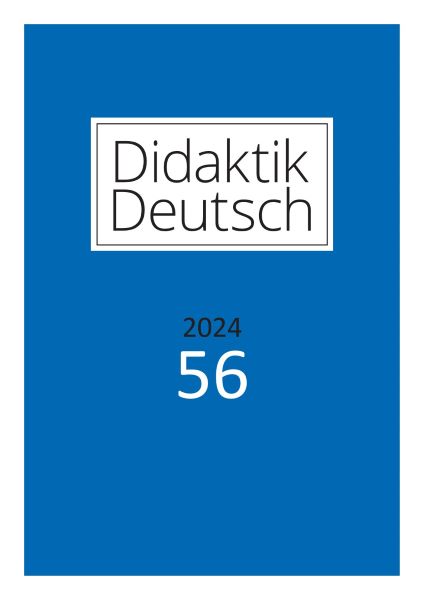Inclusion-oriented and discriminination-critical German didactics: Mai-Anh Boger´s theory of trilemmatic inclusion as meta-theoretical framework facilitating productive comparisons between different approaches
Mai-Anh Bogers Theorie der trilemmatischen Inklusion als metatheoretischer Rahmen für eine produktive Verortung und Verknüpfung deutschdidaktischer Ansätze
DOI:
https://doi.org/10.21248/dideu.712Keywords:
Deutschdidaktik, Antidiskriminierung, Inklusion, Theorie der trilemmatischen Inklusion (M.-A. Boger)Abstract
In German didactics, conceptualizations of inclusion and anti-discrimination vary to a great extent and are not always compatible with each other – often due to differing ontological premises. To make this factual plurality of conceptualizations productive, it would be useful to disclose the underlying ontological premises of the different approaches. However, the review of relevant, inclusion-oriented publications shows that this hardly happens. Therefore, this paper aims at promoting the theorization of the discourse of inclusion from a German didactics perspective, focusing on the political dimension of inclusion in terms of an anti-discrimination project. The Theorie der trilemmatischen Inklusion by M.-A. Boger, which originated in pedagogy, serves as a meta-theoretical basis. Its application to German didactics not only facilitates the identification of potentials and blind spots of different inclusion-oriented or discrimination-critical approaches as well as communication about lines of tension between them. It can also serve as a heuristic to identify innovative ways of linking different approaches of theoretical-conceptual as well as empirical research in the field of German didactics and inclusion.
Downloads
Published
How to Cite
Issue
Section
License
Copyright (c) 2024 Judith Leiß

This work is licensed under a Creative Commons Attribution-NonCommercial-NoDerivatives 4.0 International License.




